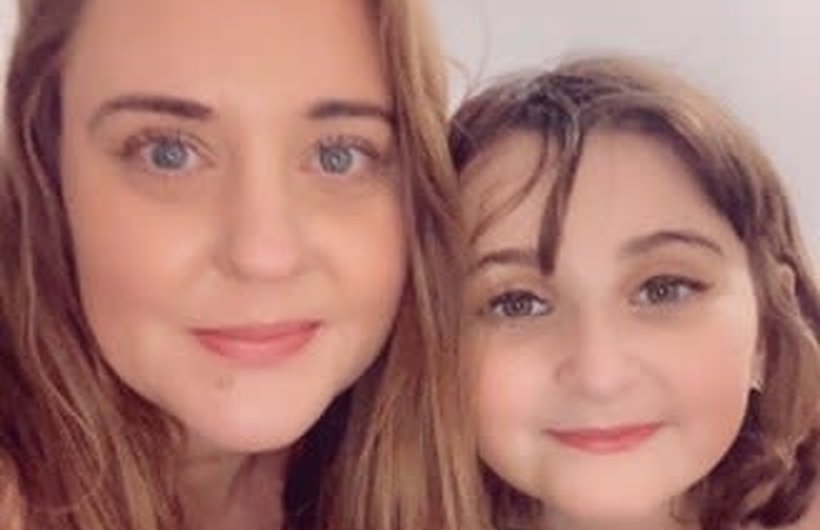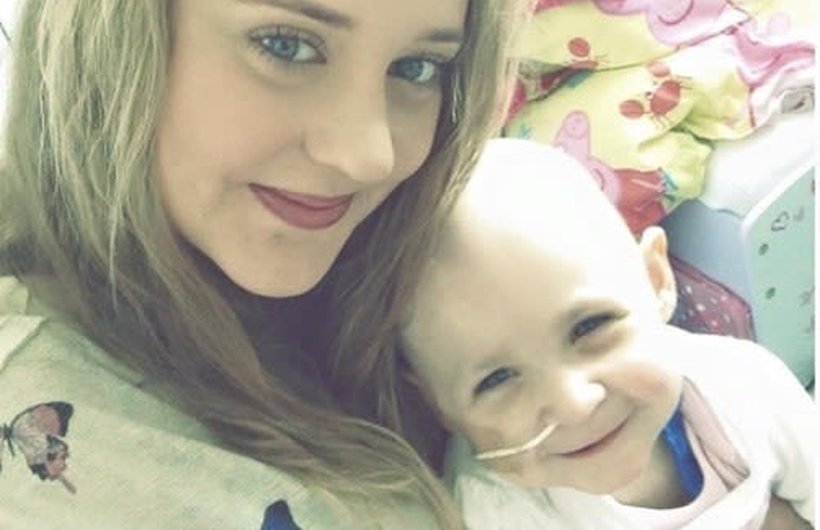Maintenance options after frontline treatment –a personal reflection on decision-making
An Introduction from Vicky Inglis, SKC Head of Family Support
Welcome to the first blog edition from our Family Support Service. Parent-led, our dedicated Family Support Service takes pride in being there for families affected by neuroblastoma.
Our regular blog articles will feature discussions around topics that matter the most. By connecting with you as families and our wider audience we wish to raise awareness of neuroblastoma and the services provided by our Family Support Team. In this blog we explore one of the dilemmas facing some childhood cancer families- deciding whether or not to access maintenance options upon completion of frontline treatment. Hayley is mum to Eva. Eva was diagnosed with high-risk neuroblastoma a week before her second birthday. Hayley is also our fabulous Family Support Coordinator at SKC. Here she shares her moving and personal story.
“My immediate reaction was guilt"- says Hayley in response to an innocent discussion with another parent who asked her if she would regret not pursuing further treatment if her daughter relapsed?
You may hear and be aware of other parents fundraising for future treatment abroad and wonder ‘Should I be doing the same thing?’ I know I did.
Coming to the end of treatment is a very difficult time. For so long, you run on the adrenaline of going from one treatment to the next. At diagnosis the treatment plan is laid ahead of you – chemotherapy, surgery, stem cell transplant, radiotherapy, and immunotherapy – all designed to make your child better. When there is no more treatment left and your child is declared No Evidence of Disease, how do you keep your child well? You almost become dependent on your child having treatment and the thought of ‘doing something’ to help. Stopping feels overwhelmingly scary.
Peer Support vs Peer Pressure
It came to our attention by another family who were fundraising for a maintenance trial through the NCCA UK (now Solving Kids’ Cancer). They were further on in treatment than us and a casual chat in the hospital parent’s room revealed they planned to take their child to the US after treatment on the NHS. It opened a can of worms. A bit of internet searching later and there were families raising hundreds of thousands of pounds for treatment and that felt incredibly overwhelming. It was a whole world of neuroblastoma that I wasn’t even aware of and by this time I thought I was well rehearsed in all things neuroblastoma.
So, when our consultant, who we trusted and respected fiercely told us we didn’t have to do that, I felt relieved to be honest. I needed someone to tell me it was OK and that was what I was hearing.
He explained to us that the science behind the trials was interesting, but unproven. He also explained that data coming from the immunotherapy trial which my daughter was on (and is now standard as frontline therapy) was showing an increase in survival rates. For children like Eva who were clear going into immunotherapy - providing her disease reassessment was clear at the end of treatment, survival rates had now increased to approximately 85%.
I like statistics, I am one of those parents that likes figures. Eva’s prognosis at diagnosis was 50% and suddenly 85% was within reach. The hope felt stronger in that moment.
But there was still an element of doubt. Why were parents fundraising for these treatments if there was no evidence? The common answer, amongst many I hear is ‘There may be a chance this helps, and I want to do all I can to make sure my child stays in remission’. I felt bad. Why wasn’t I compelled to do this if others were doing all they could. It was almost a pressure. Do they love their children more? No. I love my babies to the end of the earth but ultimately my gut was telling me I didn’t want to do this.
Making peace with my decision
I didn’t want to put her through more treatment. I wanted her to start playschool and leave the pokes and prods behind her. I wanted her to settle into a new ‘normal’ routine at home. I didn’t want to take her halfway round the world every few months for something unproven. I understood the reasons behind why others were doing it. It just wasn’t the right decision for us. Not only that, but we’d also been through so much as a family. I didn’t have the first clue where I would start raising such a huge amount of money, it felt like a huge responsibility and my network wasn’t that powerful. I didn’t have time to dedicate to a fundraising campaign when our treatment schedule was hectic and our calendar full. Not only did I not have the time, but I was already emotionally drained. Drained from my child having cancer. Unable to muster the mental strength for such a huge task.
I was so used to doctors making treatment related decisions for Eva and to suddenly shift from that where outweighing the pros and cons of whether to pursue a maintenance option relied solely upon me, felt like a huge responsibility. I didn’t want to make the wrong decision, and after a lot of emotional anguish I made the decision based on gut instinct and what I believed was a better quality of life for Eva.
I made the decision not to access further treatment after we finished frontline treatment on the NHS.
Shortly after Eva finished treatment, we attended the NCCA UK family conference. We met more families that I’d not previously met, yet I will never forget a question I was asked about whether I would regret not pursuing further treatment if Eva were to relapse. The question took me by surprise. My immediate reaction was guilt and I did a lot of soul searching after that innocent question.
After that, I made complete peace with my decision. I left it behind and moved on. I made the right decision for us, as a family, and more importantly for my child. I wasn’t going to feel bad for my reasons, just like a family who chose the alternative shouldn’t either. It’s solely a personal choice. We had a relapse scare 6 months post treatment, and even then, it didn’t cross my mind that it was because I hadn’t accessed further treatment. Thankfully, the concern was just a scare, and she was found to still be no evidence of disease. She is now over six years post treatment, and I am thrilled to say she continues to do well despite some post-treatment challenges.
The decision to pursue a maintenance option post frontline treatment is an extremely complex one with no right or wrong answer. Every family will have their own thought processes and their own reasons whichever way they lean. Every parent should know that either way – it is OK. If you want to access further treatment, Solving Kids’ Cancer will support you to do that. If you don’t – Solving Kids’ Cancer will support you with that also.
We can’t and don’t provide medical advice. However, our support service is available to any family in the UK facing a neuroblastoma diagnosis. We provide a listening ear as well as practical and emotional support to parents and carers of children throughout the treatment journey and beyond.



